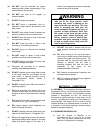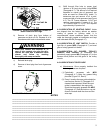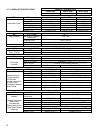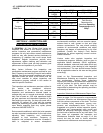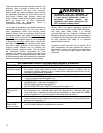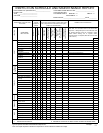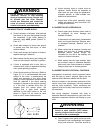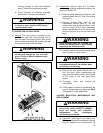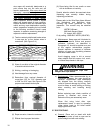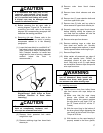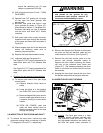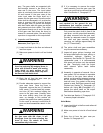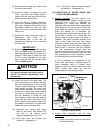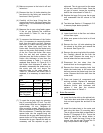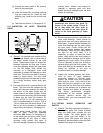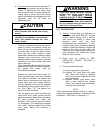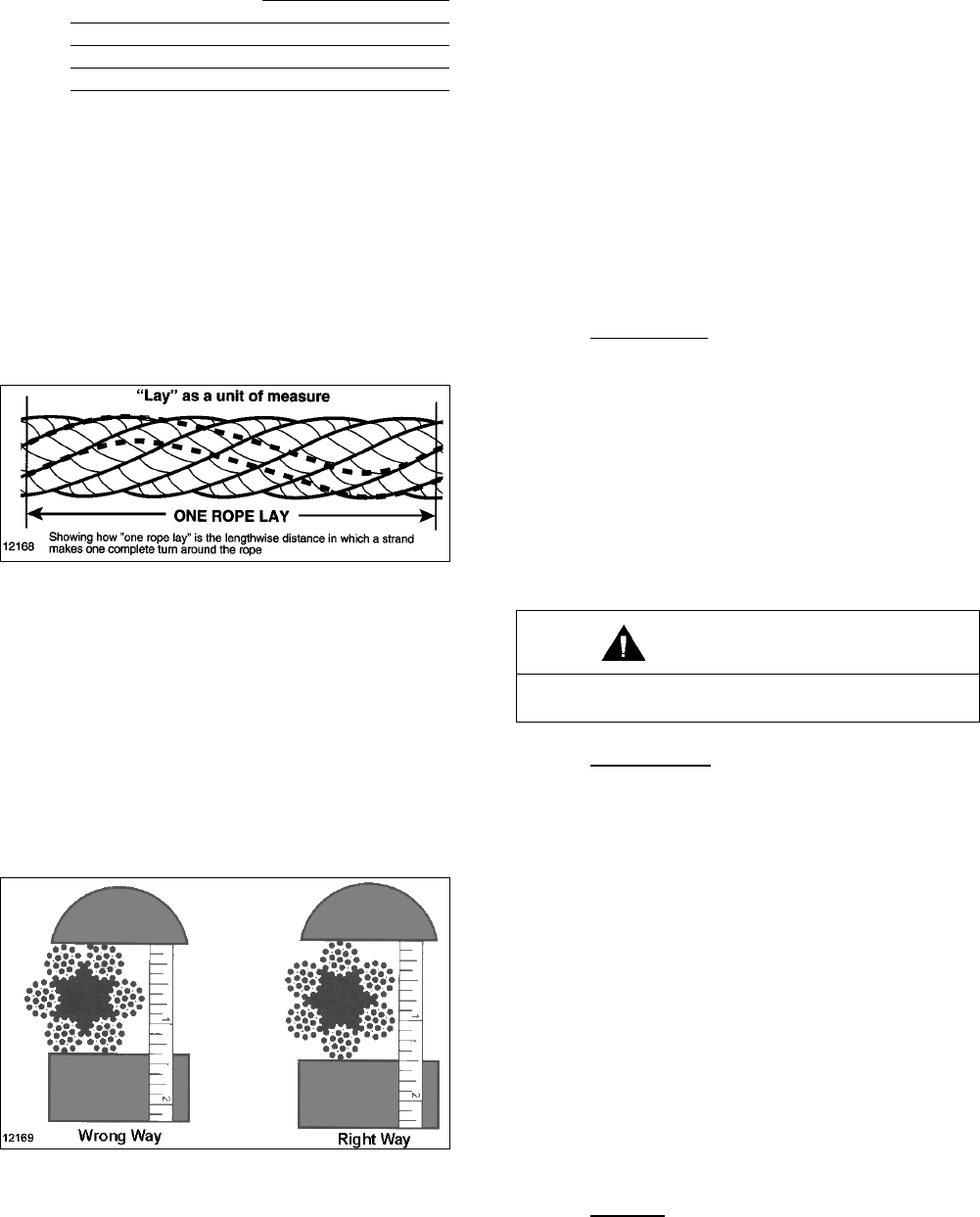
16
wire ropes will eventually deteriorate to a
point where they are not safe and will
require replacement. Wire rope should be
thoroughly inspected at regular monthly
intervals by an authorized person and a
determination made when further use of the
rope would constitute a safety hazard.
Each inspection should include a written
dated and signed report of rope condition.
Reports should be filed and reviewed each
month and any rope deterioration carefully
noted. Inspections revealing but not limited
to the following conditions should cause
inspector to question remaining strength of
rope and consider replacement:
(1) Twelve randomly distributed broken wires
in one rope lay or four broken wires in
one strand. (See Figure 5-4.)
Figure 5-4. Description of One Rope Lay.
(2) Wear of one-third of the original diameter
of outside individual wires.
(3) Kinking, crushing, or birdcaging.
(4) Heat damage from any cause.
(5) Reductions from nominal diameter of
more than 1/32” for 7/16” diameter rope
or 3/64” for 9/16” rope. See Figure 5-5 for
proper measurement techniques.
Figure 5-5. Correct Method of Measuring Rope.
(6) Rope corrosion, internal or external.
(7) Effects from improper lubrication.
(8) Rope being idle for one month or more
due to shutdown or inactivity.
Special attention should be exercised when
inspecting rope normally hidden during
inspecting procedures.
Please refer to the Wire Rope Users Manual
–for illustrations and definitions when
following the above guidelines for rope
inspection. This manual may be obtained
from:
WRTB Fulfillment
609 North Second Street
St. Joseph, MO 64502
Or by calling: 1-888-BUY-WRTB (289-9782).
b) Maintenance.
Keep rope well lubricated to
help reduce internal friction and prevent
corrosion. Lubricant, as described in
Paragraph 4-3, should be applied as a part
of the regular maintenance program.
Special attention is required to lubricate
sections of rope over equalizing sheaves
and other hidden areas.
Avoid dragging ropes in dirt or around
sharp objects that will scrape, nick, crush,
or induce sharp bends in the rope.
WARNING
Use only factory-approved rope with
swaged wire rope socket.
c) Replacement.
When recommended by an
authorized inspector, the rope should be
replaced. Replacement rope assemblies
are shipped from the factory carefully
coiled to prevent damage by kinking. Care
must be taken to avoid twisting or kinking
when uncoiling and handling during
reeving.
Before replacing rope, check condition of
grooves in sheaves and drums to
determine if they are excessively worn.
When first using hoist after rope
replacement, break in rope by operating
under lighter loads to full travel before
applying maximum load.
5-7. ROPE REEVING.
a) General.
Place reel on stand with shaft
through the center of reel so rope can be
pulled straight out with reel rotating.



